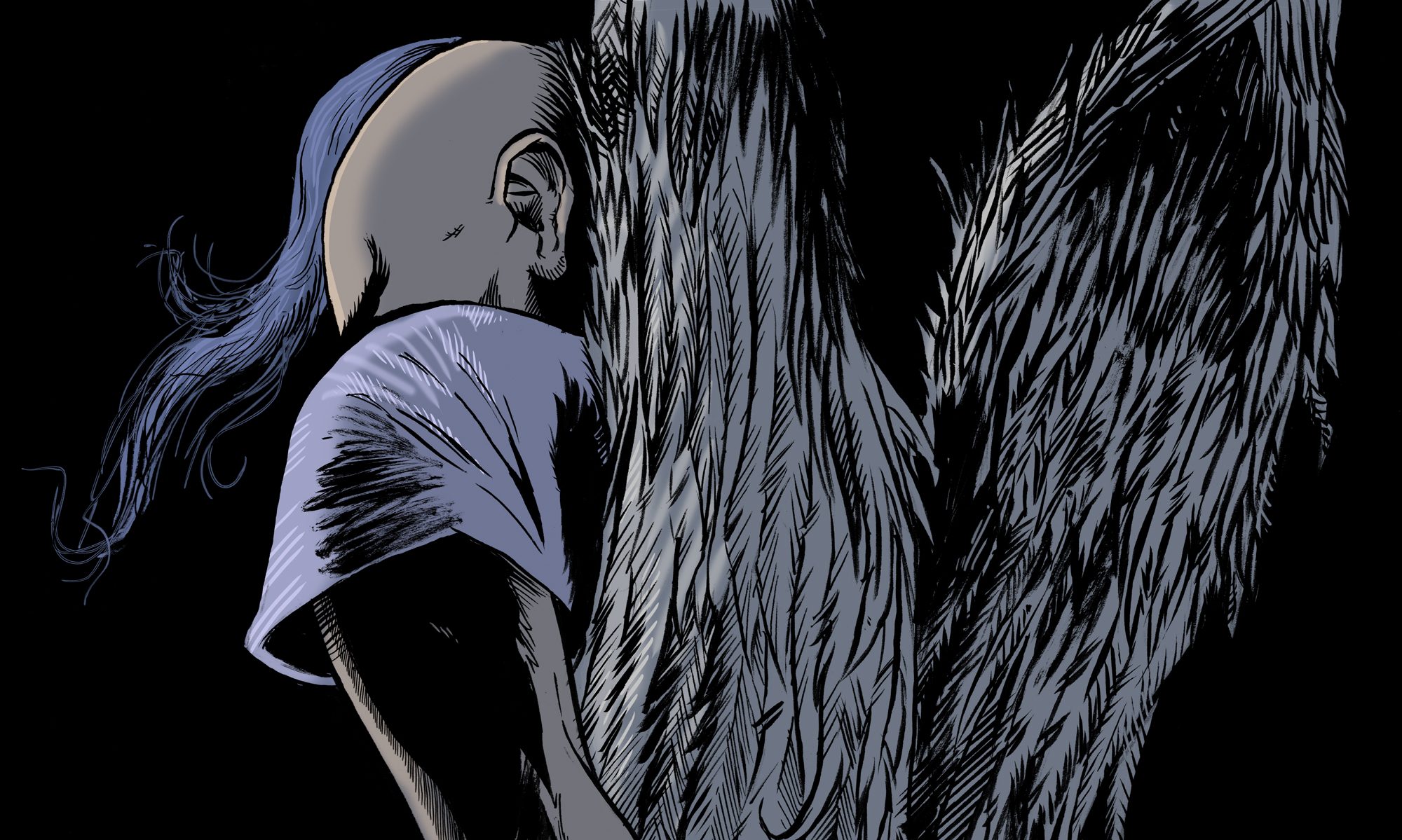This story originally saw print in Transfer #75, Spring 1998
By David Accampo
Leroy leaning on the black iron gate, Leroy owes me forty dollars. He’s thin as a lamppost, bent over, brown skin faded. Shit, I mean look at me. I’m black, white, everything, all mixed up, he tells me, thin arms outstretched, scant black hair curling up his forearms. Why did Leroy tell me that? When he asked me for ten dollars yesterday. Didn’t have any milk. No milk for the kids. His breath was sharp and hot, the metal tang of malt liquor. Hey, can I come in for a minute? I want to ask you something. I’ll pay you back as soon as I get my check. Disability check only comes once a month. Leroy scratches the brown weave of his hair under his baseball cap. Once a month marijuana smoke drifts across the cement courtyard. Leroy’s blue eyes waver when he talks about his newborn baby in the hospital, Her…her heart can’t beat on its own, they got her hooked all up with tubes and wires and shit. But I asked the doctor, you know, ‘cause me and Debra smoke a little pot on occasion, but that’s okay, the doctor was saying that it ain’t ‘cause of that. Can I use your phone to call the hospital? We don’t got a phone right now.
In the courtyard, Pablo paints the door to the apartment next to mine. Bright blue. The police busted it open when they arrested the last tenants, a swarm of black-and-yellow jackets buzzing through. I heard the shouts through the paper-thin walls, heard the stomping boots, heard the door frame splinter. I turned the volume on the television down and listened to the voices, sometimes loud and raw, sometimes low and firm. Pablo’s shiny skin is striped in blue. You let Leroy into your place. I wouldn’t do that, man. He and Debra got a problem with the crack, if you know what I mean. Pablo likes me because I pay my rent, even though its always late. A fading shaft of daylight plunges down the center of the courtyard, down past the iron railing of the second floor, illuminating gray concrete, an overturned tricycle. I think he’s checking your place out, I think he’s casing it. Robert, in #16, got robbed when he was out of town. I think it might have been Leroy. I mean, I heard about the baby, but I never seen it. I didn’t even know she was pregnant, did you? The Washing Woman carries a wicker basket across the court. I’ve never learned her name, but she is always doing laundry, jeans and shirts and socks draped across the railing, drying in the column of sun. The chubby white girl in a plain yellow dress smacks a soccer ball against the mud-streaked walls until her mother cracks open her door. Get in here! Now, you little shit! If you don’t get in here right now, you’re going to be SO fucking dead! The gate creaks on its hinges as Milo walks in, home from work, his coveralls smeared with paint and primer and plaster and dirt. He hums a tune, jingles his keys, and opens his mailbox. Pablo says, Hey, and Milo tips his hat to us and climbs slowly up the stairs. Continue reading “Apartment House Blues”
